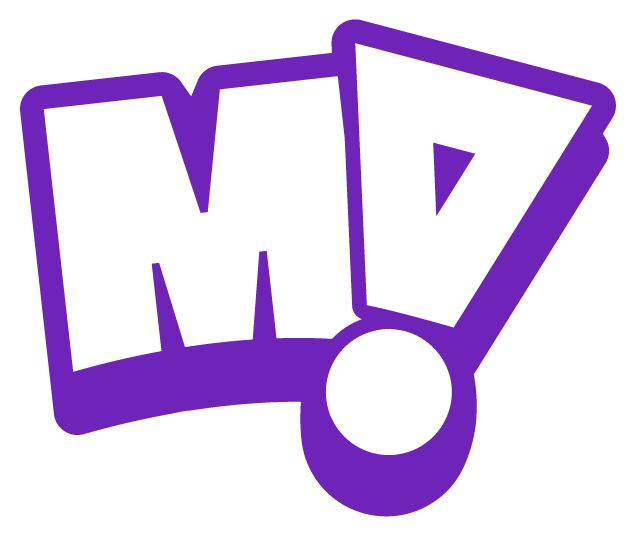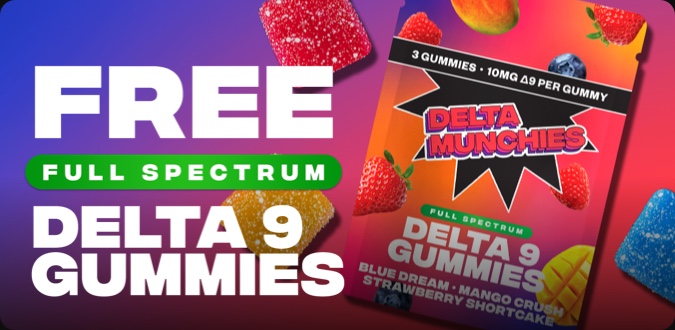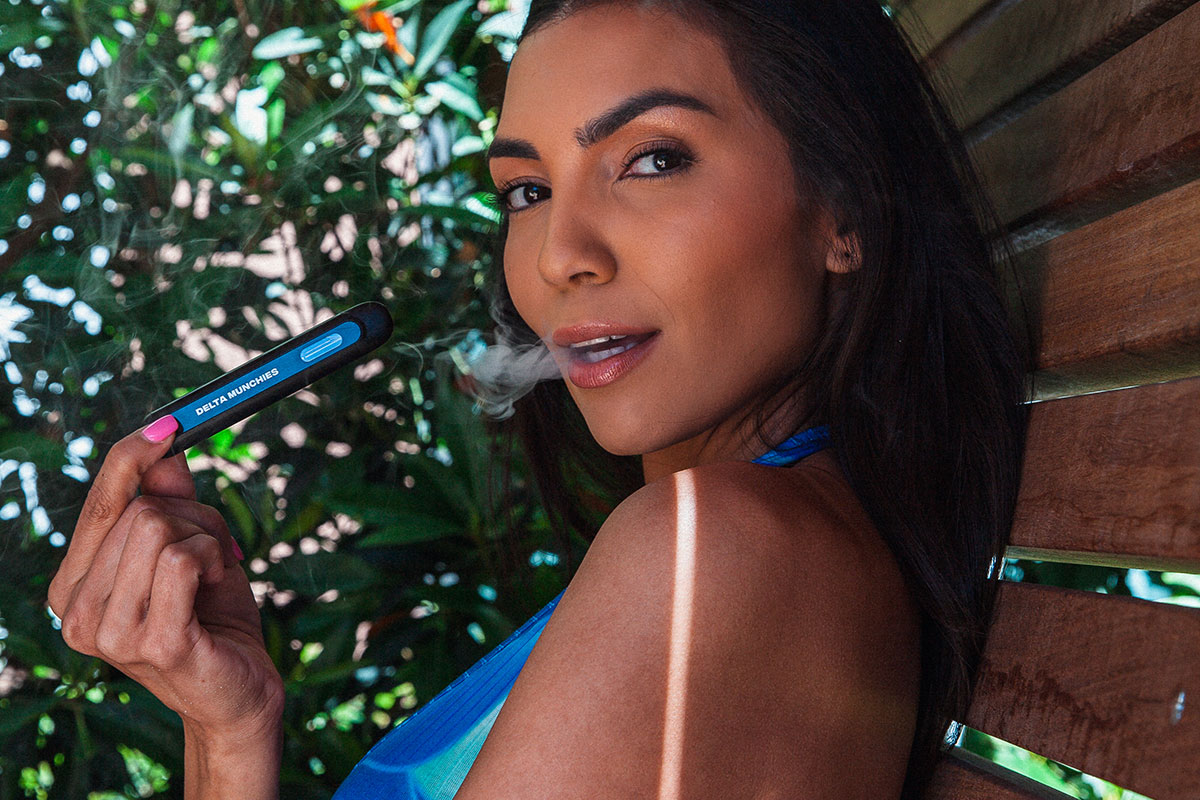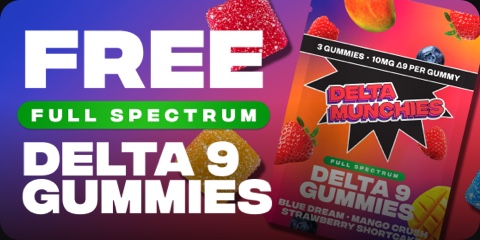Delta 8, Informative
Can You Smoke Delta 8 While On Medication?
Cannabis use certainly isn’t anything new to humans. Many different cultures have used marijuana both medicinally and recreationally for thousands of years. However, the introduction of man-made pharmaceuticals happened much more recently in human history and poses a whole new plethora of questions and concerns regarding what is safe and what is not.
Even more recent has been the introduction of “alternative cannabinoids” to the cannabis industry. For the most part, delta 9 THC (or tetrahydrocannabinol) has been the reigning champ of weed, followed closely by its non-psychoactive cannabinoid cousin CBD (or cannabidiol). But since cannabis has been more widely legalized across the United States and other countries across the world, this has let cannabis researchers have a lot more access to the tools they need to dive deeper into the cannabis plant.
As of today, there have been over 100 unique cannabinoids identified in the cannabis plant. The most popular cannabinoids found from this discovery have been cannabinoids such as HHC, CBG, CBC, delta 10 THC, and delta 8 THC.
Out of these “alternative cannabinoids,” or cannabinoids other than delta 9 THC, delta 8 THC has been a massive frontrunner in terms of innovation in the cannabis industry. Delta 8 has now become a household name next to THC and CBD, with millions of people using delta 8 products every year.
But with the rise of delta 8 use in the United States for both recreational and medicinal reasons, this has prompted a lot of people to wonder how delta 8 mixes with other medications they may be taking. Can you smoke delta 8 while on medication? Is it safe to smoke delta 8 on certain medications? Although delta 8 is relatively new to the market, cannabis research has been around long enough for us to collect enough information to give you everything you need to know about smoking delta 8 on medication.
Disclaimer: Delta Munchies is NOT providing any medical or legal cannabis advice. If you have any questions or concerns regarding the legality of cannabis or its potential effects of cannabis or any of its components, please reach out to a trusted medical or legal professional.
All statements made by Delta Munchies regarding delta 8, delta 9 THC, delta 10, HHC, CBN, CBG, CBD, and any/all other cannabinoids mentioned in this article have not been evaluated by the FDA. No entity at Delta Munchies is a medical professional, nor is Delta Munchies giving any medical advice. If you have any questions or concerns regarding the potential effects of cannabis, please reach out to a trusted medical professional.
Delta Munchies fully adheres to the federal legal standards of hemp cultivation and distribution in the United States. For more information, visit our full disclaimer page.
Contents
Can You Smoke Delta 8 While On Medication?
Can you smoke delta 8 while on medication? Since there are thousands of different types of medications that are commonly prescribed, there is no single blanket answer to this question. Each person, their reaction to medications, and their reaction to cannabis are different. There are a wide variety of factors that go into determining an individual’s unique physiology and in turn how their body will react to or metabolize certain substances.
Is Delta 8 Safe to Take With Other Medications?
Delta 8 has been legally deemed safe to use for adults in the United States. Cannabis research suggests that delta 8 is no more or less safe than delta 9 THC or any other cannabinoids found in the cannabis plant. So, that makes delta 8 as safe as regular cannabis use. Thankfully, since we’ve been using cannabis as a species for thousands of years, we have a decent amount of insight into how cannabis interacts with the human body.
While it’s generally safe to use delta 8, certain medications may modify the effects of delta 8 and change the experience you may have while consuming it. However, the only ones that can determine whether delta 8 is safe to take with the medications you may be on are you and your doctor. If you are thinking about introducing delta 8 into your medicinal routine, please consult a trusted healthcare professional.
Which Drugs Interact with Marijuana?
Thankfully, there have been no reports of marijuana and prescription drugs interacting in a way that has caused serious or lethal harm. Cannabis is generally deemed safe for adults to use and has shown incredible potential in the medical world. However, some doctors advise against heavy cannabis use with certain medications as they may exacerbate some effects of the medications in a way that may be negative or uncomfortable.
Sedatives
Sedatives such as Ambien, Lunesta, and Benadryl are known for making their users extremely tired. While this may be the very point of these medications, mixing them with marijuana can make the tiredness users experience even more intense, in turn causing over impairment.
Anti-Anxiety Medications
Anti-anxiety medications such as Xanax, Valium, and Librium also have a tendency to make their users extremely tired. Again, mixing marijuana with anti-anxiety medications may cause user over impairment.
Antidepressants
The human body contains things called metabolites, which are the chemical compounds in our metabolism that metabolize the substances we put in our bodies. One of those metabolites is called CYP3A4 and is responsible for metabolizing certain prescription pills like antidepressants such as Zoloft, Prozac, and Lexapro. THC (delta 8 included) is a CYP3AF inhibitor, which means that using it in conjunction with medications that need CYP3AF to be properly metabolized may result in the medications being less effective.
Pain Medications
Pain medications such as codeine, Percocet, and Vicodin are also metabolized through the CYP3AF metabolite, which means their effectiveness may also be hindered by the presence of large amounts of THC. However, some people prefer to use delta 8 THC for pain relief and may find it to be a good addition to or alternative to their pain relief routine. If you’re thinking about adding delta 8 into your regular pain relief routine, please make sure to first consult your trusted primary care physician.
Anticonvulsants (Seizure Medications)
On a positive note, marijuana has been shown to help the effectiveness of anticonvulsants (or seizure medications) such as Tegretol, Topamax, and Depakene. Marijuana has also been used to help those suffering from epilepsy or other seizure-related diseases, with studies now showing that the combination of the two may show positive promise.
Anticoagulants (Blood Thinners)
Anticoagulants (or blood thinners) such as Coumadin, Plavix, and heparin are some of the few medications that are NOT recommended to use alongside marijuana. Cannabis naturally helps to thin the blood already, which means that used in conjunction with prescription blood thinners may increase the risk of heavy bleeding or the blood being unable to clot correctly.
Delta 8 THC and Other Medications
While less severe than the medications listed above, delta 8 THC and other medications may also interact in ways that are important to be aware of before mixing them.
Benzodiazepines
Mixing marijuana and benzodiazepines can result in central nervous system depression, meaning that people can experience decreased breathing rates and heart rates, and in severe cases, loss of consciousness. Benzodiazepines are also known for making their users drowsy which can be exacerbated by the use of marijuana. Mixing marijuana and benzodiazepines may cause user over impairment.
Opioids
Opioids are an extremely strong class of drug and should only be used under professional medical supervision. That being said, most healthcare professionals advise against mixing anything with opioids as they’re already so strong on their own. Opioids help to relieve pain, but they also make their users extremely drowsy and “out of it,” with many people feeling high simply from taking the opioid. Mixing opioids of any kind and marijuana can result in acute over impairment in users and should be avoided unless expressly stated by your primary care physician.
Immunosuppressants
Immunosuppressants are medications that have to be taken by people with a variety of autoimmune conditions. Immunosuppressants are pretty self-explanatory: they suppress the immune system. That being said, inhaling smoke of any kind (whether it be nicotine or THC) can potentially increase the risk of lung irritation and diseases like bronchitis and pneumonia.
Blood Pressure Medications
People on blood pressure medications should err on the side of caution when it comes to smoking marijuana. Depending on your unique physiology, smoking weed can raise your blood pressure causing hypertension-related stress, or lower your blood pressure causing symptoms such as lightheadedness and dizziness. Smoking delta 8 on blood pressure medications isn’t dangerous, but it can mess with your blood pressure levels, making your blood pressure medications less effective.
Blood Sugar Medications
Some people use marijuana as a way to help regulate their blood sugar, but if you combine marijuana with blood sugar medications, you may get a more intense effect than you intended to. Cannabis has been found to be extremely effective in dropping the blood sugar of its users and if used in conjunction with a blood sugar medication that also lowers blood sugar, it can cause a blood sugar “crash” that may result in shakiness, sweating, pale skin, headache, hunger or nausea, irregular or fast heartbeat, fatigue, or irritability and anxiety.
Safely Smoking Delta 8 THC on Medications
Cannabis has existed alongside humans for thousands of years. Over the years, we’ve been able to harness the power of this plant and use it for a plethora of things; we’ve turned it into hemp, we’ve cooked it in our foods, we’ve smoked the leaves of the plant, and we’ve used it as medicine. Cannabis is one of the few “drugs” that humans have figured out is generally safe for pretty much anyone to use. In the many years that humans have been smoking weed, there have been no recorded overdoses or deaths directly due to marijuana ever reported in human history. As far as “drugs” go, that’s a pretty impressive feat!
However, with the introduction of so many man-made pharmaceuticals into our daily lives, it’s important to use cannabis in a safe and responsible way. And once again, the only people who can determine whether delta 8 THC or any other cannabinoid is safe to use on the medications you take are you and your primary care physician or a trusted healthcare professional. There are many ways to safely and effectively use cannabis in addition to other medications in your healthcare routine, and thankfully, many doctors are well versed in enough medical marijuana to answer any questions you may have.
Disclaimer: Delta Munchies is NOT providing any medical or legal cannabis advice. If you have any questions or concerns regarding the legality of cannabis or its potential effects of cannabis or any of its components, please reach out to a trusted medical or legal professional.
All statements made by Delta Munchies regarding delta 8, delta 9 THC, delta 10, HHC, CBN, CBG, CBD, and any/all other cannabinoids mentioned in this article have not been evaluated by the FDA. No entity at Delta Munchies is a medical professional, nor is Delta Munchies giving any medical advice. If you have any questions or concerns regarding the potential effects of cannabis, please reach out to a trusted medical professional.Delta Munchies fully adheres to the federal legal standards of hemp cultivation and distribution in the United States. For more information, visit our full disclaimer page.






